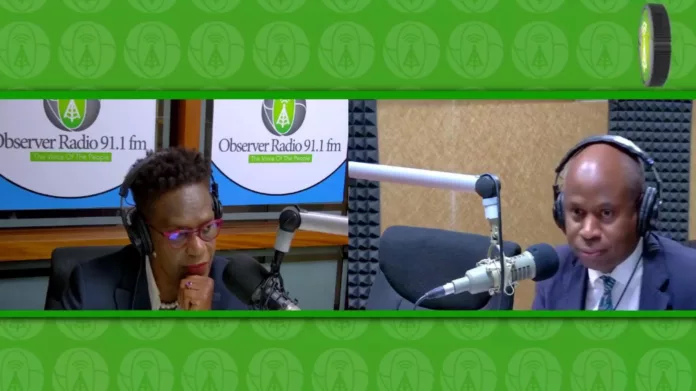By Robert Andre Emmanuel
Suggestions that the Barbuda airport could be torn down amid a legal ruling in opponents’ favour have been rebuffed by the lawyer who represented the government in the matter.
Dr David Dorsett said he was incredulous by the notion, explaining there are a number of factors preventing the destruction of the soon to be officially completed facility.
Speaking on the Observer AM show yesterday, Dr Dorsett responded to statements made by Leslie Thomas KC, an attorney for appellants in the Privy Council hearing John Mussington and Jacklyn Frank, who vowed on Tuesday that the legal team will press ahead with challenging the government.
Thomas suggested that one of the orders they could seek from the court would be for the government to “tear down” the airport and follow proper legal procedures as set out in the Physical Planning Act 2003 and other laws.
Dorsett said the case “has not been resurrected to life eternal; like Lazarus, it will die because when one looks at enforcement because of non-compliance with the Physical Planning Act, there are certain things that must be considered before any corrective action can be undertaken”.
He continued, “They must consider what is the statement of policy issued by the minister relative to the development, they must also consider the nature and extent of the breach, the extent of the damage to the environment, the likely expense involved in bringing remedial measures and what is going to be the benefit.”
Dr Dorsett said the airport was not like a “sandcastle which, if built too close to the sea edge, the waves will come and overtake it”.
The government – which considers the appellants to be “busybodies” – had sought to have Mussington and Frank’s lawsuit against the airport dismissed.
The Privy Council was asked to consider whether the pair had legal standing to challenge decisions by the government – and ultimately held that they did.
The court ruled that Mussington and Frank just needed to show some knowledge or concern for the subject area and that, as local residents, they are likely to be affected by heavy air traffic, general disruption, and environmental damage.
The judgement differed from a previous ruling by the Eastern Caribbean Supreme Court which had used a far narrower interpretation of the law.
Dr Dorsett said it was time that regional governments accept that times have changed.
“What used to be par for the course for the Eastern Caribbean is no longer par for the course,” he said.
However, he reiterated in the broader context that having an airport in Barbuda is a good thing, comparing it to the airports on Saint Martin/Sint Maarten.
“We have to approach the matter in an informed and reasonable way. We can accept that some persons, for whatever reason, are reluctant to have an airport on Barbuda, but that aside…bringing an airport to an island is not bringing leprosy,” he said.
Government maintains that having an international airport in Barbuda is critical to the sister isle’s economy and development.

